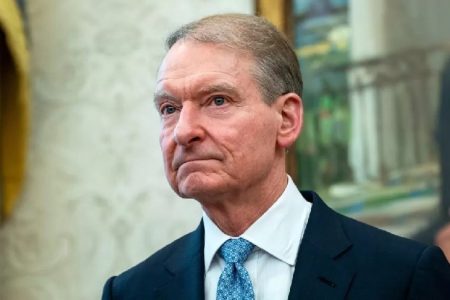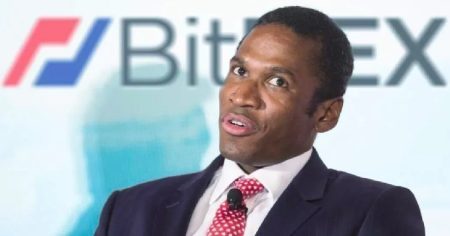The National Center for Public Policy Research (NCPPR), a Washington D.C.-based conservative think tank, has urged Amazon to incorporate Bitcoin into its strategic reserves by its next annual meeting in April 2025. This echoes a similar proposal made just weeks earlier by Michael Saylor, executive chairman of MicroStrategy, to Microsoft. The NCPPR argues that Amazon has a fiduciary duty to consider assets with higher appreciation potential than bonds, even if those assets exhibit short-term volatility. This proposal targets Amazon’s substantial cash and cash equivalent holdings, which amount to approximately $88 billion and currently consist of U.S. government, corporate, and foreign bonds. The core rationale behind the NCPPR’s recommendation is the persistent threat of inflation eroding the value of these traditional holdings.
The NCPPR highlights the inadequacy of bond yields in protecting shareholder value against inflation, particularly given the recent surge in inflation rates, which peaked at 9.1% in June 2022 in the United States. The think tank contends that the returns from Amazon’s current bond holdings have failed to keep pace with real inflation, thereby diminishing their effectiveness as a safeguard for the company’s considerable financial reserves. In contrast, Bitcoin’s performance has been significantly more robust. The NCPPR points to Bitcoin’s 131% appreciation over the past year, dramatically outperforming bonds and corporate bonds, which have yielded substantially less. This stark difference in performance underscores, in the NCPPR’s view, the potential benefits of diversifying into Bitcoin.
The NCPPR underscores the success of MicroStrategy’s Bitcoin adoption strategy as a compelling example for Amazon to consider. MicroStrategy began adding Bitcoin to its balance sheet in 2020, and since then, its stock has surged by an impressive 594%. This performance dwarfs Amazon’s stock growth, which has only seen a 57% increase over the same period. This comparison serves as a powerful illustration of the potential gains that can be achieved by strategically allocating a portion of corporate reserves to Bitcoin. The NCPPR’s proposal emphasizes the need for Amazon to adapt to the evolving financial landscape and embrace innovative strategies to maximize shareholder value.
The NCPPR further bolsters its argument by referencing the growing institutional interest in Bitcoin, exemplified by prominent financial players like BlackRock and Fidelity. These institutions have launched Bitcoin ETFs (Exchange Traded Funds) earlier this year, signaling a growing acceptance of Bitcoin as a legitimate asset class. This increasing mainstream adoption, according to the NCPPR, further validates the potential of Bitcoin as a strategic reserve asset and reinforces the urgency for companies like Amazon to consider its inclusion in their portfolios. The convergence of these factors – high inflation, underperforming bonds, and rising institutional interest – creates a compelling case for Amazon to explore the benefits of Bitcoin.
The proposal’s timing comes shortly after Michael Saylor’s similar pitch to Microsoft, highlighting a growing trend among industry leaders to recognize Bitcoin’s potential. While Microsoft’s decision on the matter is still pending, the fact that a major tech giant is actively considering such a move lends further credence to the NCPPR’s argument. The NCPPR suggests that this increasing interest in Bitcoin is not merely a fleeting trend but rather a reflection of a fundamental shift in the financial landscape, driven by the need for inflation hedges and the growing recognition of Bitcoin’s potential as a store of value.
In conclusion, the NCPPR strongly recommends that Amazon allocate at least 5% of its assets to Bitcoin. This move, they argue, is not just a forward-thinking strategy for a technology company but a crucial step towards preserving and enhancing shareholder value in the face of persistent inflation. Diversifying into Bitcoin, the NCPPR asserts, would offer Amazon a powerful hedge against the erosion of purchasing power caused by inflation, while also positioning the company to capitalize on the potential for significant appreciation in the value of this emerging asset class. The think tank presents a compelling case for Amazon to embrace Bitcoin as a strategic asset, arguing that it is a prudent and potentially highly rewarding move that aligns with the company’s fiduciary responsibility to its shareholders.


![Standard Chartered Cuts Bitcoin and Ethereum Forecasts, Predicts Bottom by [Date] at $[Price]](https://commstrader.com/wp-content/uploads/2026/02/3f2a2e40b5435ea86ade84c25b7ee76c02e7fe3c-300x200.jpg)



![Standard Chartered Cuts Bitcoin and Ethereum Forecasts, Predicts Bottom by [Date] at $[Price]](https://commstrader.com/wp-content/uploads/2026/02/3f2a2e40b5435ea86ade84c25b7ee76c02e7fe3c-450x300.jpg)








